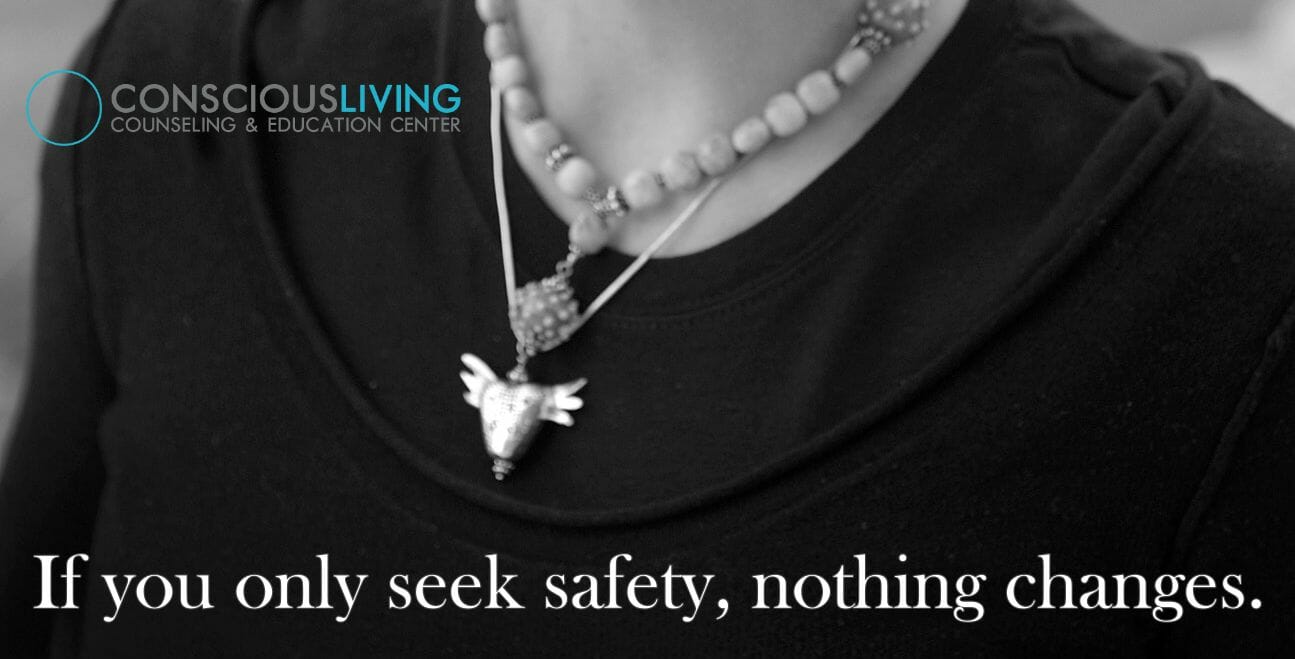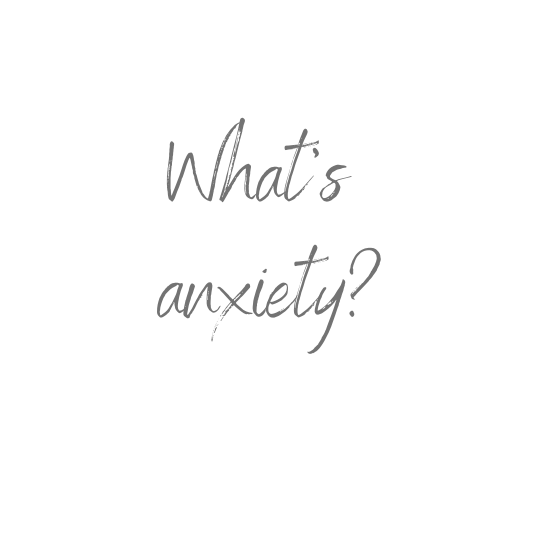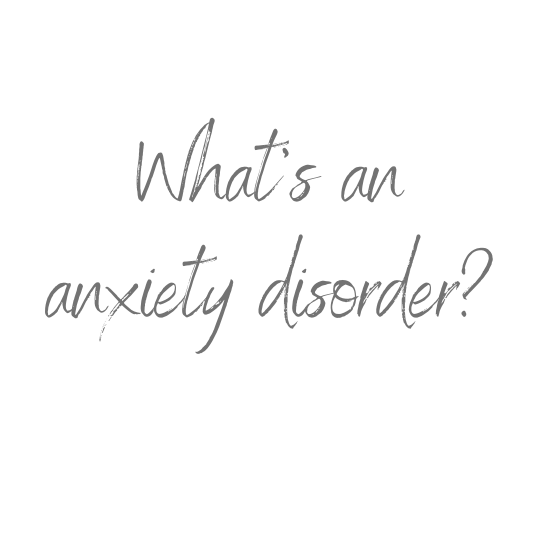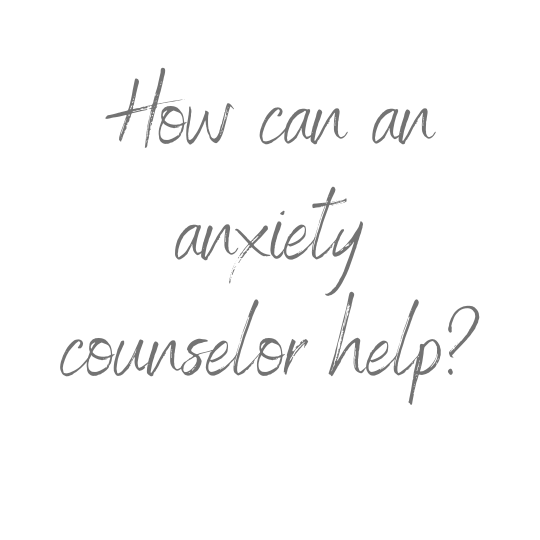I’m so glad you’re here! Are you struggling with anxiety, or have you been diagnosed with an anxiety condition? If so, you’ve come to the right place.
First, Let’s talk about the nature of anxiety and problematic anxiety patterns. Then, I’ll share how an anxiety specialist can help.
Your mind pays close attention to thoughts and beliefs about the danger in the world. Ultimately, the mind will categorize the world or experiences into things to explore or something to avoid. Why?
The brain has a #1 job – to keep you safe and alive.
It does this through signaling and fear structures in the brain.
Within your body are safety systems designed to guide and influence your behavior. These systems communicate with you by reallocating internal resources and physical sensations, often called “anxiety.” These physical sensations prompt you to take action – encouraging you to distance yourself from something that could be physically or emotionally dangerous.
A complex interplay of emotion, memory, and learning impacts your anxiety levels. Your mind labels specific experiences and memories – and sends you signals (anxiety), cueing you to monitor for threats.
When you believe something is dangerous, your body will create a cascade of physical sensations that feel like anxiousness. These sensations are meant to feel intense and get your attention. At the same time, your brain boosts your energy levels and sharpens your focus – helping you avoid physical or emotional danger.
Your anxiety signaling works like this:
- What is feared and to be avoided? (fear stimuli or situation)
- What is your preferred response to prevent this bad thing from happening? (move away, avoid, limit contact, control)
- What is your short-term desired outcome? (safety, comfort, peace)
When the process of anxiety signaling is working well, you’re reasonably accurate about the danger and threat levels around you.
You make choices based on long-term goals that result in personal growth and enhance your life.
However, if you struggle with anxiety, your nervous baseline will remain elevated as if you’re always in harm’s way. Your alarm system may become hypersensitive, swiftly over-protecting you.
This repetitive pattern is exhausting and blocks you from learning new ways to respond to threats.
Anxiety is designed to keep you safe.
This can be difficult to remember if you’re suffering from anxiety concerns.
When feeling too anxious – a system designed to help keep you safe is now causing you problems; the anxiety signal is no longer helpful or informative!
When anxiousness warns you to avoid or move away from things or situations that are not harmful, anxiety is no longer serving its biological function.
What’s an anxiety disorder vs. anxiety?
An anxiety disorder means, in the simplest terms, that you’re avoiding something that isn’t truly harmful. Or when avoiding anxious situations causes more problems than it solves.
This avoidance strengthens the belief that you cannot handle and confront your fears.
A skilled anxiety therapist has extensive training to help you gain the resources and confidence to confront your fears. Most people describe anxiety treatment as “hard but fun.” I hope you consider reaching out and beginning the healing process.
Disordered anxiety can steal lots of meaningful experiences from you.
Honestly, you deserve better.
Recovery from an anxiety condition means no longer living a life based on fear or avoidance.
And you are moving more freely through your day.
How Can an Anxiety Counselor Help?
It’s okay for you to talk about what’s happening here. Things will make sense during the process. You’ll learn more about what’s happening and what to do about it.
Clinical counseling offers specific, research-supported treatments for specific anxiety conditions. I’ll provide a simple, clear clinical assessment to explore the nature of your symptoms and develop an appropriate care plan for each step of your care.
Above all – I’m real – there is nothing you can tell me about your anxiety I haven’t heard before. Seriously. I believe in an open and kind counseling relationship, and I’ll help you find your way through the fog of fear. Click here to read my bio.
Below are some of the most common problematic anxiety patterns:
RUMINATION PATTERN
In this pattern, you tend to spend too much time thinking about past experiences, replaying events and conversations, and placing unreasonable expectations on performance or outcomes.
- Social anxiety
- Shame-based thoughts
- Attachment and relational anxiety
WORRY ABOUT “LIFE-STUFF” PATTERN
In this pattern, you find yourself frequently dwelling on difficulty, uncertainty, or a perceived problem.
RE-EXPERIENCING PATTERN
In this pattern, events or memories from the past keep impacting you today. You experience something from the past like it is happening to you now.
- Adverse life events are holding you back
- Past event impacts daily functioning and your ability to make healthy choices
- Your nervous system is stuck in high throttle
MEDICAL PATTERN
In this pattern, your body senses danger within itself and does its best to keep you upright. Your body reprioritizes which parts of you get access to internal energy resources. It’s a built-in system to keep you going even when you feel depleted.
- Autoimmune
- POTS
- Any lung conditions
- Hormone imbalance
- Sleep disorders
- Digestive disorders
- Thyroid conditions
- Glucose intolerance and related conditions
A skilled anxiety specialist is experienced in these areas and can assist you with building a responsive medical team to support your overall health. I have 20 years of experience helping men and women with medical-related anxiety conditions.
OBSESSIVE PATTERN
In this pattern, you are frequently stuck in continuous, intrusive, or troubling thought loops.
EXECUTIVE FUNCTION PATTERN
In this pattern, you experience frequent feelings of being overwhelmed and underperforming. Overwhelmed is a cognitive state resulting in too much information too fast, to the point of feeling consuming or panic-inducing. It feels a lot like anxiety – but has more to do with information processing versus fear of uncertainty- a primary feature of anxiety.
- ADHD/ADD
- Raised in homes that required self-parenting
- Raised without resources or options to impact well-being
UNVARYING PATTERN
In this pattern, you tend to be focused on rule-governed behavior and thinking. Thinking is often inflexible and causes consequences as well as rewards. Inflexible thinking is often paired with other skills deficits, such as struggling with organization, time awareness, or interpersonal effectiveness. The pattern results in Rule-Goal fusion. This means a belief that there is only one path to reach a goal, and it becomes a self-rule and is often applied to others.
- Perfectionism
- Performance anxiety
- Stress-related anxiety
Research-Supported Counseling, No Guessing
I offer both holistic and research-supported interventions. Everything is on a continuum. I’ll help you find the best counseling interventions for you. However, we’ll hold steady where it counts. Good counseling is an art form – a blend of support, education, and strengthening self-discipline.
I offer research-supported, contemporary treatments, including:
- Somatic Therapy
- Executive Function/Cognitive Training
- Metacognitive Interventions (to build self-trust)
- Inference-Based Cognitive Behavioral Therapy
- Cognitive Behavioral Therapy
- Exposure and Response Prevention Therapy

Do you need your partner on board?
People struggling with anxiety often benefit from changing how they communicate with their partner or spouse. As anxiety symptoms are usually running the show! It’s helpful if your partner supports your recovery. We can coach your partner in helpful ways to communicate, break reassurance patterns, and offer compassionate support.
Loving partners enjoy feeling more confident in how they support their partners. It’s a win-win. With the new patterns, couples can learn how to bond over other topics and enjoy each other without worry being the primary topic.
Are you working with another medical provider or taking anxiety medication?
Are you working with a trusted medical provider or psychiatrist? I welcome collaboration with your medical team or prescribing physician – or we can keep this separate, too, if you desire more privacy.
I support both medication and holistic treatment plans. Again, it comes down to what’s the best option for you and your recovery.
Do you need to use your insurance?
Clinical counseling is an intervention for a medical condition, such as an anxiety condition or ADHD. These are recognized medical conditions, and you may use your insurance to help with the cost of treatment. Our clinic currently accepts Blue Cross Blue Shield ND, BCBS PPO plans, Sanford Health, and private pay.
⫸ Are you a worrier?
LEARN MORE ABOUT CHRONIC WORRY







